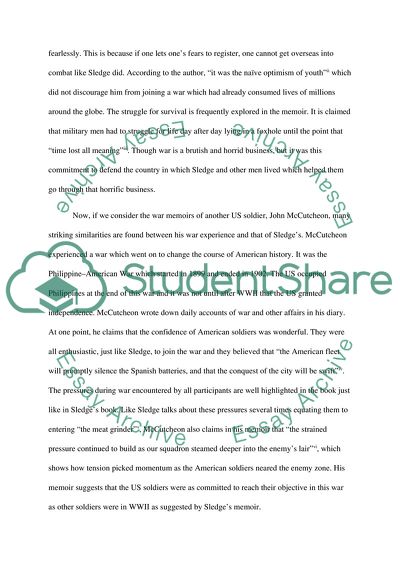Cite this document
(E. B. Sledge's War Experience Term Paper Example | Topics and Well Written Essays - 2000 words, n.d.)
E. B. Sledge's War Experience Term Paper Example | Topics and Well Written Essays - 2000 words. https://studentshare.org/history/1828024-e-b-sledges-war-experience
E. B. Sledge's War Experience Term Paper Example | Topics and Well Written Essays - 2000 words. https://studentshare.org/history/1828024-e-b-sledges-war-experience
(E. B. Sledge'S War Experience Term Paper Example | Topics and Well Written Essays - 2000 Words)
E. B. Sledge'S War Experience Term Paper Example | Topics and Well Written Essays - 2000 Words. https://studentshare.org/history/1828024-e-b-sledges-war-experience.
E. B. Sledge'S War Experience Term Paper Example | Topics and Well Written Essays - 2000 Words. https://studentshare.org/history/1828024-e-b-sledges-war-experience.
“E. B. Sledge'S War Experience Term Paper Example | Topics and Well Written Essays - 2000 Words”. https://studentshare.org/history/1828024-e-b-sledges-war-experience.


